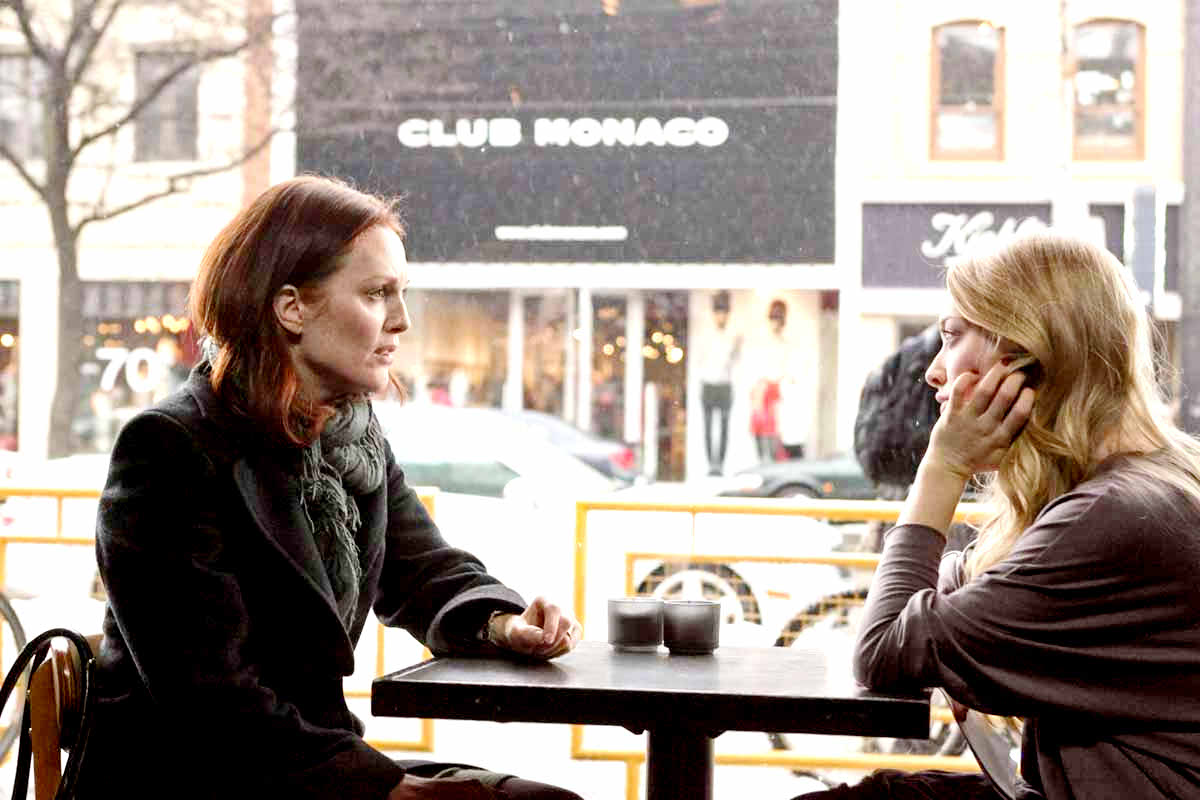I’d like to suggest that the theme of Atom Egoyan’s Chloe –- a woman’s midlife crisis –- hasn’t been identified by any of the film’s reviewers that I’ve read so far. Many of them have been calling the movie a hoot (Jim Hoberman, meet Anthony Lane) and perhaps just as many have been reaching for Fatal Attraction as their principal point of comparison and abuse. Since that crude shocker isn’t a film about a woman’s midlife crisis, I assume they’re misreading Chloe, which is easy enough to do if you’re mainly restricting the story to — that is, viewing most of it through — its bombastic penultimate scenes.
Disregarding the Anne Fontaine movie that served as this movie’s basis, which I haven’t seen, I think what’s sneaky and deliberately misleading about the story is that it starts off pretending to be a movie about a husband’s midlife crisis and then winds up as a movie about his wife’s midlife crisis. (If this constitutes a spoiler, tough luck; all I can say as a rejoinder is that comparing the movie to Fatal Attraction is a spoiler as well.) So some viewers must feel cheated. But women’s midlife crises are so uncommon in movies that perhaps some people are trained not to notice them when they actually turn up as a theme. This one is impressive to me more for the uplift of its final scene — which transpires without dialogue, and is conveyed almost entirely through the way a teenage boy looks at his mother -– than for its penultimate one, which is plainly over the top but nevertheless makes the final scene possible.
Many reviewers who have complained about the film’s second half — including some who appear to have accepted and enjoyed the fact that Inglourious Basterds proposes an Occupied France without a Resistance — have stressed that they find it unbelievable. Since I think it goes without saying that most commercial movies are fantasies, and it’s moreover worth saying that whether or not we accept these fantasies depends a lot on whether or not we want to, I think these complainers are missing something. Certainly the hyperbolically upscale furnishings of the characters are quite a stretch, but this is the sort of stretch that most reviewers don’t mind in many other circumstances. If this were a movie about a male midlife crisis, I wonder whether they would have kvetched quite as much.
By the way, Julianne Moore, playing the main person in this story, is sensational, and Amanda Seyfried, playing the main fantasy object, is very sexy. [9/30/10]


